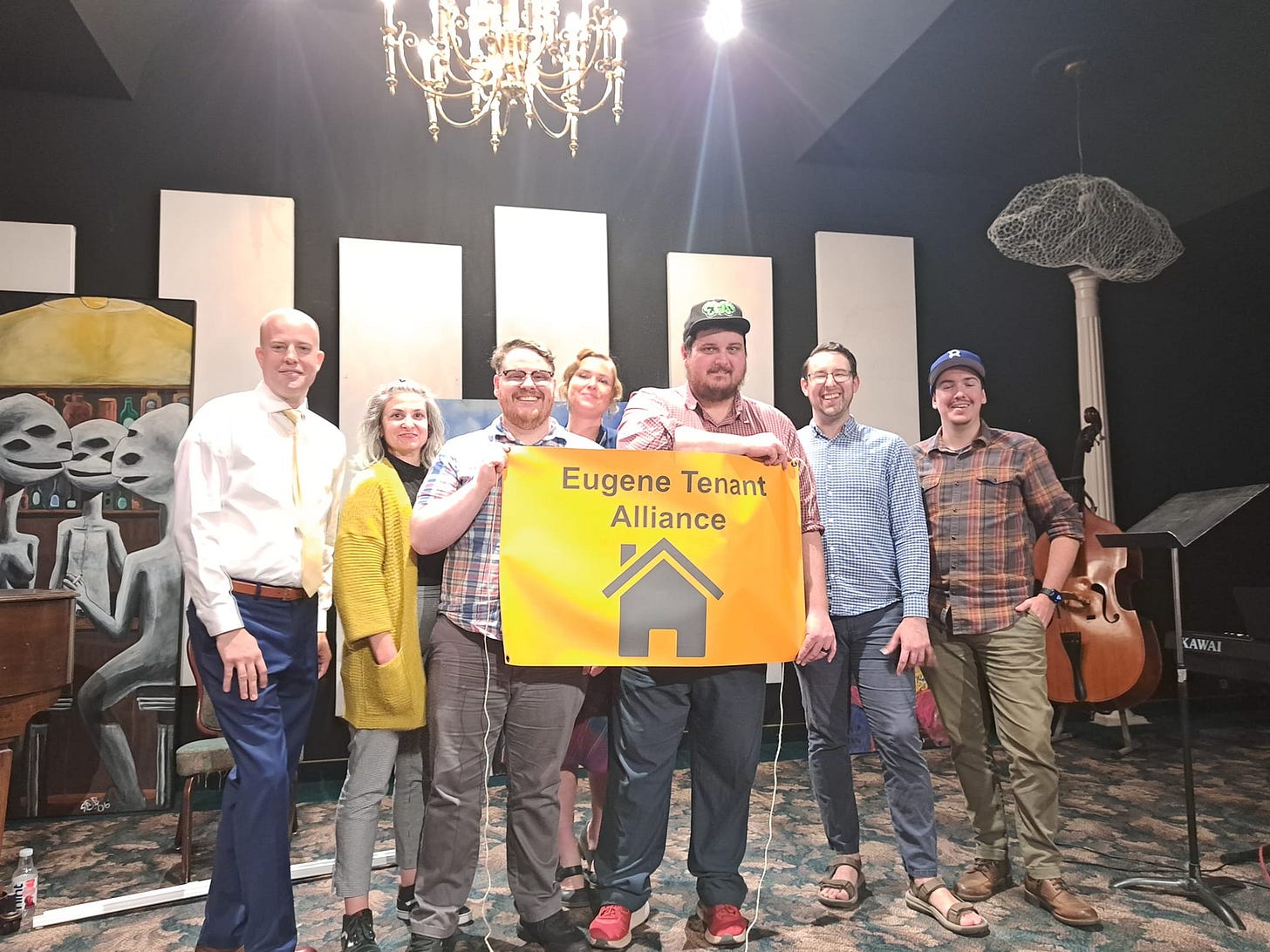Breaking News: Court of Appeals Upholds Eugene’s $10 Cap on Application Screening Fees: A Victory for Tenants
Two years after passing phase 1 renter protections, the city of Eugene can finally cap application fees at $10.
Court of Appeals Upholds Eugene’s $10 Cap on Application Screening Fees: A Victory for Tenants
(City Council meeting on July 11, 2022, when Phase 1 was passed)
Eugene, OR – In a major win for renters, the Oregon Court of Appeals has reversed a Lane County Circuit Court decision, paving the way for the City of Eugene’s ordinance that caps rental application screening fees at $10 maximum per applicant to go into effect. This decision solidifies Eugene's ability to protect its residents from excessive fees that create barriers to housing, especially for low-income individuals and families.
The ruling overturns the lower court’s judgment, which held the cap on application fees was preempted by state landlord-tenant law. The Court of Appeals, however, determined that the $10 cap can coexist with state law, affirming the City’s authority to implement local consumer protections like a cap on application fees.
“This is a huge win for renters in Eugene,” said Kevin Cronin, an organizer with the Eugene Tenant Alliance. “We call on the city of Eugene to begin enforcing this part of the city code as soon as the injunction is lifted. We recognize that this issue might not be over and we will see if the landlords appeal this decision to the Supreme Court. In the meantime, the city can start enforcement. We will continue our efforts to make the $10 cap statewide by bringing back legislation like SB 684.”
The $10 cap was a key component of the “Phase I” renter protections passed by the Eugene City Council in July 2022, aimed at addressing the significant challenges renters face in an increasingly competitive housing market. These protections also include requirements for move-in/out documentation, rental history provisions, and mandatory tenant education.
“Renters in our community often struggle with the financial burden of application fees, sometimes as high as $75/per person when searching for housing,” said Tim Morris, Executive Director of the Springfield Eugene Tenant Association. (SETA) “The $10 cap on application fees is a critical measure that ensures low-income renters, including those with Section 8 vouchers or only having Social Security Disability income, have a fair shot at securing housing. Today’s decision ensures that these burdens are kept in check, providing much-needed relief to those who are already navigating a tough rental market.”
"With the ongoing housing shortage and high competition among renters, this cap offers much-needed relief,” added Molly Goulet, a Eugene attorney who works with low-income residents and serves on SETA’s policy committee. “When someone has to apply to many rentals to find a new home, the cost can become significant. Renters are already out moving costs, a security deposit (until the first is refunded), and the time and stress of changing houses and schools. The City of Eugene has been attempting to make housing more stable and fair for renters, and this cap will help achieve that goal."
The Eugene Tenant Alliance, which has been at the forefront of advocating for these protections, remains committed to supporting and advancing tenants' rights throughout Eugene and Oregon. This ruling, which reinforces the city’s right to enact local tenant protections, sets a precedent that could inspire similar measures across the state.
“As we continue this fight, we hope this victory inspires other cities to adopt strong tenant protections of their own,” added Cronin. “Looking ahead, the Eugene Tenant Alliance is committed to advancing our campaign for Tenant Opportunity to Purchase as a proposed addition to Eugene’s Phase 3 renter protections. This initiative would give tenants the first right to buy their homes if the property is put up for sale, further empowering renters and helping preserve affordable housing in our community. We will keep working alongside state legislators and local officials to ensure all Oregonians have access to fair, affordable housing.”





